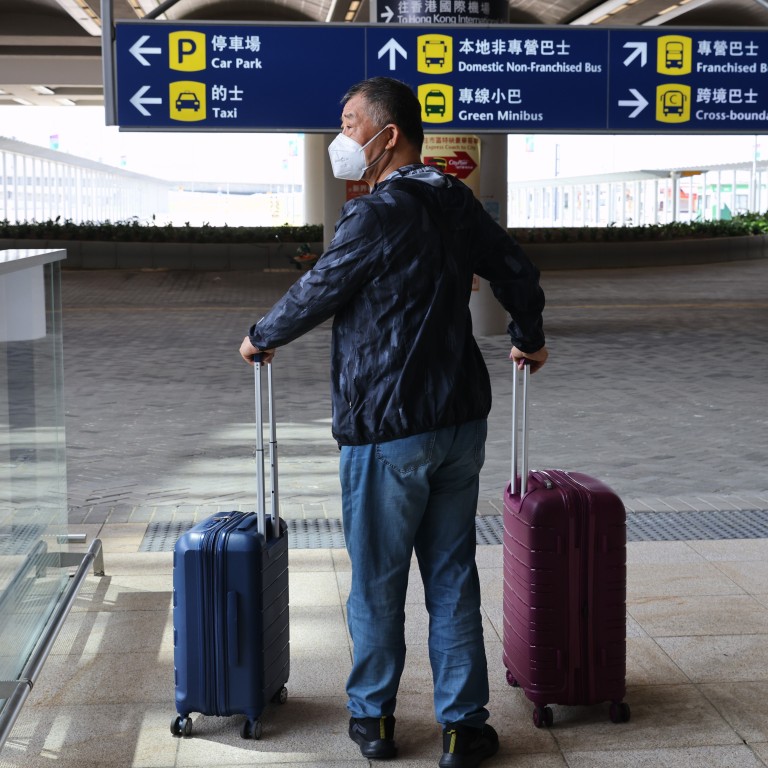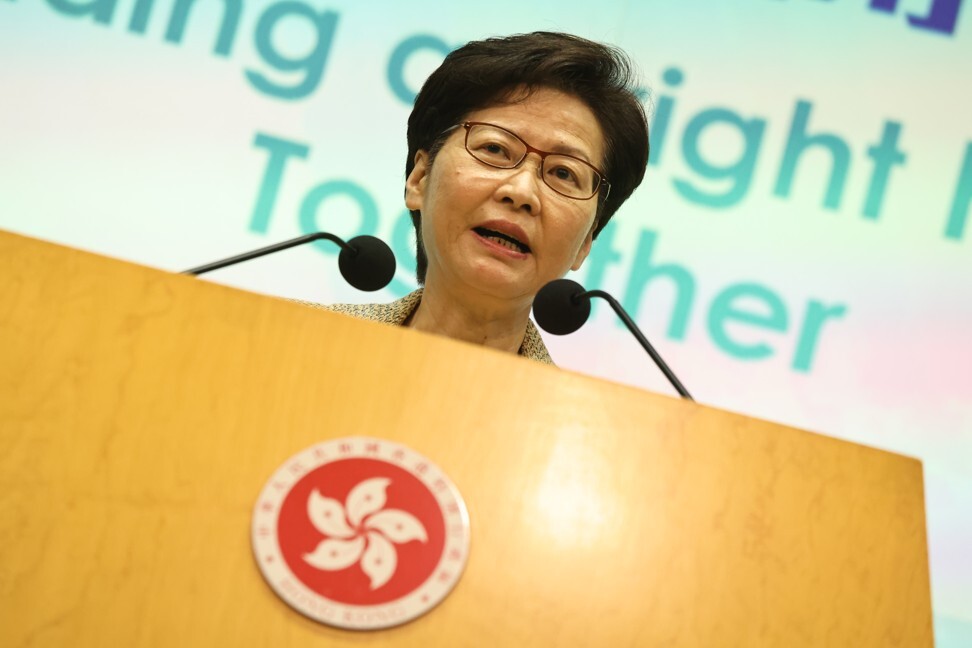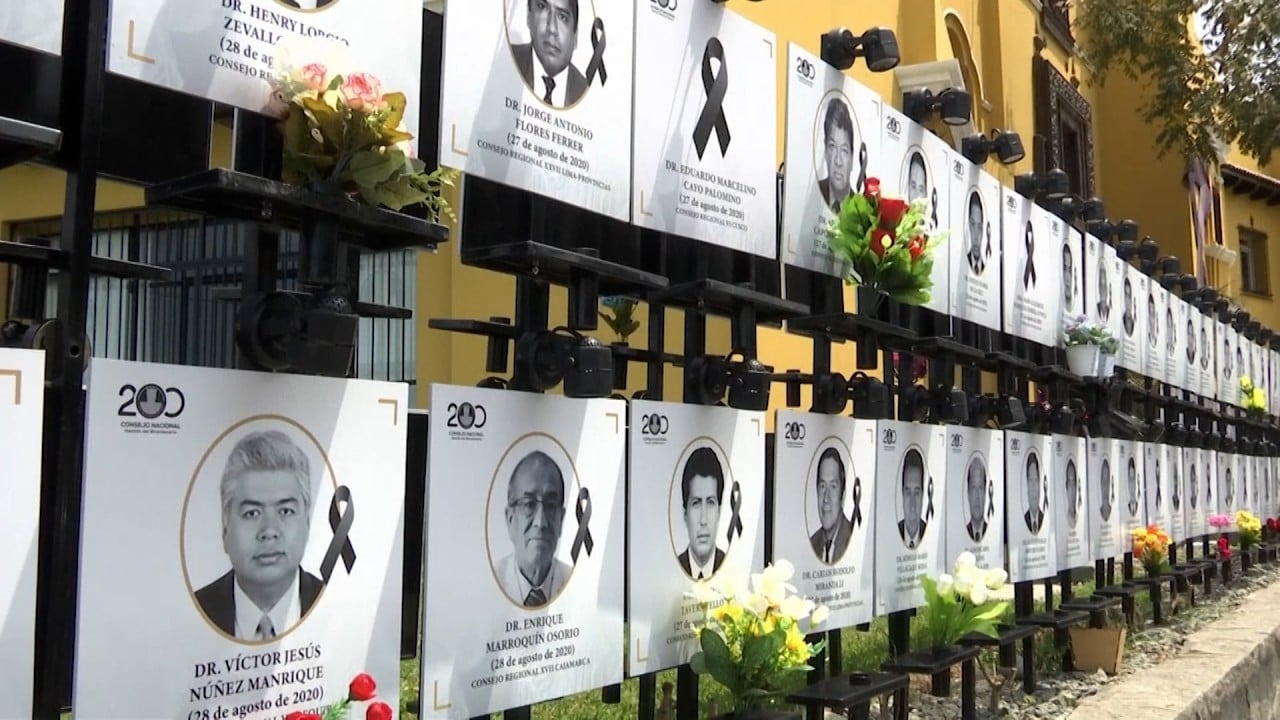
Exclusive | Coronavirus: Hong Kong border with mainland China to fully reopen to quarantine-free travel by June at latest, official sources say
- Reopening had ‘received the attention of the top Chinese leaders’ and all sides ‘working hard to make it happen’, one insider says
- Hong Kong on Monday confirms no new Covid-19 cases for the first time in nearly a month
Hong Kong’s land border with mainland China will reopen fully to quarantine-free travel by June at the latest, official sources have revealed, signalling a significant breakthrough after months of the city’s intense lobbying to fight the debilitating impact of the checkpoint closures on its economy.
One insider based in Beijing said the reopening had now “received the attention of the top Chinese leaders” and all sides were “working hard to make it happen”.
The full border reopening, which sources said could happen earlier than June if all goes smoothly, would cap a three-step plan starting in mid-December.
The scheme would entail a small pilot programme involving daily quotas to be followed by an expansion in February to allow “mass events”, a source said, reaffirming what city leader Carrie Lam Cheng Yuet-ngor had suggested last week.
And by June, several of the 10 land checkpoints would fully reopen, enabling a set number of people to cross every day without being subjected to quarantine, provided they met certain conditions.
The plan would start with travellers entering the mainland via Shenzhen. Discussions on resuming air travel had not begun, the source said.
A spokesman for the State Council’s Hong Kong and Macau Affairs Office confirmed last Thursday that both sides had reached “significant consensus” over reopening the border.
Cathay resumes more flights to Europe, but tough quarantine rules hit plans
Senior mainland and local officials held their first meeting on the issue in September, which was followed by a number of working-level talks, with the next one expected to take place this week.
She said quarantine-free travel between the city and the mainland would be limited to Guangdong province initially, using a quota system with priority given to business exchanges and those visiting the elderly or attending funerals.
But it would be difficult to make cross-border students a priority group given their sheer numbers, she said.

01:04
Panic buying after China’s Covid-19 cases continue to surge
Some 236 million people crossed the land border checkpoints in 2019. All but two of the checkpoints were shut down in February 2020, and only 17.5 million people crossed last year, with many of them qualified under an exemption scheme for cross-border transport.
The system is expected to require travellers to be vaccinated against the coronavirus, submit to nucleic acid testing, upload their records from the “Leave Home Safe” contact-tracing app and apply for a mainland health code on arrival.
A mainland-registered mobile phone number may also be required to allow authorities to track people’s movements and for contact purposes.
A second government source in Guangdong province with knowledge of the preparations said Shenzhen authorities were gearing up to test the system to ensure it could cope with the demands of a “mid-December trial run”.
Tougher Covid-19 testing, booster shot incentives on table for Hong Kong’s civil servants
“We also need to prepare for the contingencies, say in the case of a new outbreak happening, how do we handle the people who are still passing the border? How shall we quickly notify people who have travel plans?” he said, referring to how a circuit-breaker mechanism could work to suspend and resume the scheme.
The December trial would build towards an “expanded sizeable daily quota” in February and the goal was to fully reopen the border with a “large daily quota or even without limit, maybe in June at the latest”.
The first source said the focus of the negotiations was now on the criteria for the circuit-breaker mechanism, which had to be “effective and workable”.

“There are still some differences in opinions. While the mainland prefers to just adopt the definitions of the National Health Commission for low, medium and high-risk areas, Hong Kong is hoping for a bit more tolerance. I think we can work it out soon,” the insider said
According to Xinhua, the mainland’s health authority will grade an area, which can be a housing estate, village or a street, as medium risk and impose a lockdown if one confirmed case is found.
It will remain as medium risk if no more than 10 confirmed cases or one cluster outbreak consisting of more than five cases are recorded over the 14 following days. If an area has more than 10 confirmed cases or two or more cluster outbreaks within two weeks, it will be upgraded to high risk.
For a medium-risk area to be downgraded to the low category, it must go at least 14 days with no new locally transmitted cases. A high-risk area needs to have no more than 10 confirmed cases or one cluster outbreak over 14 consecutive days to be downgraded to medium.
The Hong Kong government is under mounting pressure to speed up the border reopening, as local and international businesses have complained about suffering as a result of being shut out from mainland activities and deals, while families have been separated for almost two years.
Joe Chau Kwok-ming, president of the Hong Kong General Chamber of Small and Medium Business, expressed disappointment that the full opening might not happen until June.
“We had hoped that a close to full opening of the border could come after the Winter Olympics [in February 2022],” Chau said.
“There is nothing we Hong Kong businessmen can do but wait. We hope the Hong Kong and mainland authorities can reach a consensus earlier. The government perhaps can also explain the difficulties it faces.
“For many Hong Kong businessmen, what they want is for both sides to find a solution, a way that the mainland side finds acceptable and the Hong Kong government also finds workable.”
Some local businesses were forced to skip the China International Import Expo in Shanghai because of the border restrictions, according to Chau.
Fears Hong Kong’s cross-border pupils will be left behind when travel resumes
“Many are losing the chance to meet potential clients. Many mainland clients like to have in-person interaction when doing business. The border and quarantine restrictions for the past year have forced many small and medium-sized companies to lose business.”
Yu Xinhu, 46, a Hong Kong permanent resident staying in Shenzhen, said he hoped the authorities could include some arrangements for the students who needed to commute to Hong Kong for schooling.
“The border closure is a major disruption to our lives. My wife and I have to make arrangements with our employers to work from home in order to help my boys to attend online classes,” Hu complained.

01:38
Global Covid-19 death toll passes 5 million, but experts say actual number is much higher
A leading Hong Kong health expert said on Monday that residents hoping to travel to the mainland when the border reopened should sign up for a Covid-19 booster shot sooner rather than later.
Dr Joseph Tsang Kay-yan, co-chairman of the Medical Association’s advisory committee on communicable diseases, suggested the booster shots could be made a prerequisite for such travel.
“If you want to visit the mainland right after the border reopening, then you should really consider getting vaccinated with a third dose soon,” Tsang told a radio programme.
The city on Monday confirmed no new Covid-19 cases for the first time in nearly a month, while about 44,000 people had booked their third vaccine shot since registration opened on Friday. High-risk groups such as the elderly will be the first to receive the doses from Thursday.
Most new Hong Kong cases are imported and the last local infection was confirmed on October 8, involving an airport cargo handler who was carrying the L452R mutation.
The absence of any new Covid-19 cases on Monday maintains Hong Kong’s overall infection tally at 12,368 cases with 213 related deaths. The last time Hong Kong did not record a single coronavirus case, either local or imported, was on October 10.
Additional reporting by Ng Kang-chung and Kathleen Magramo


